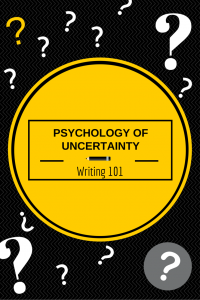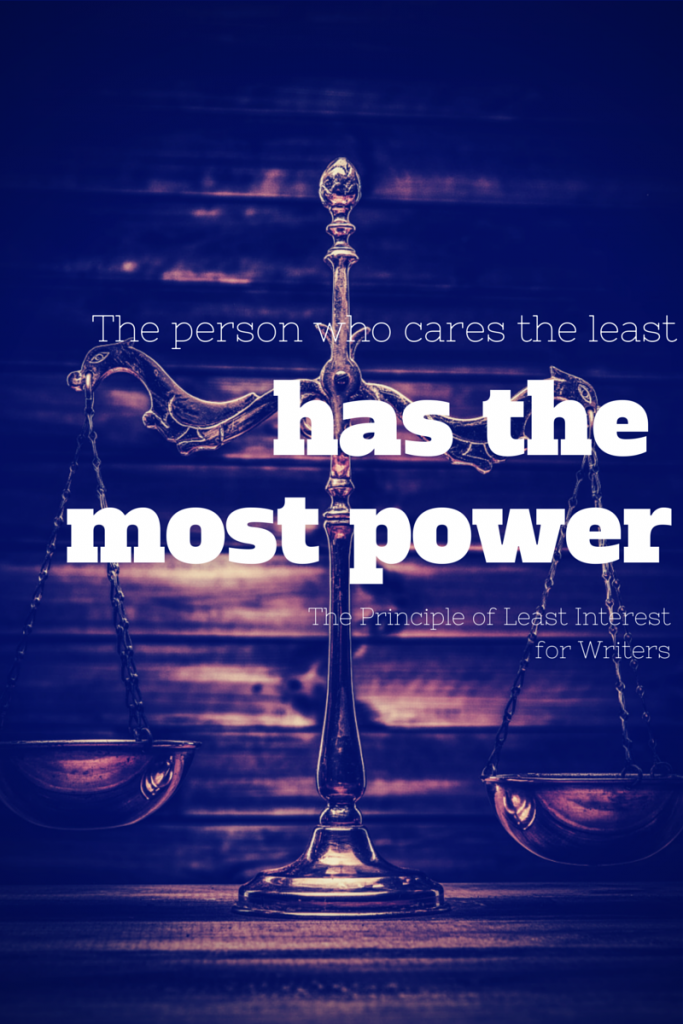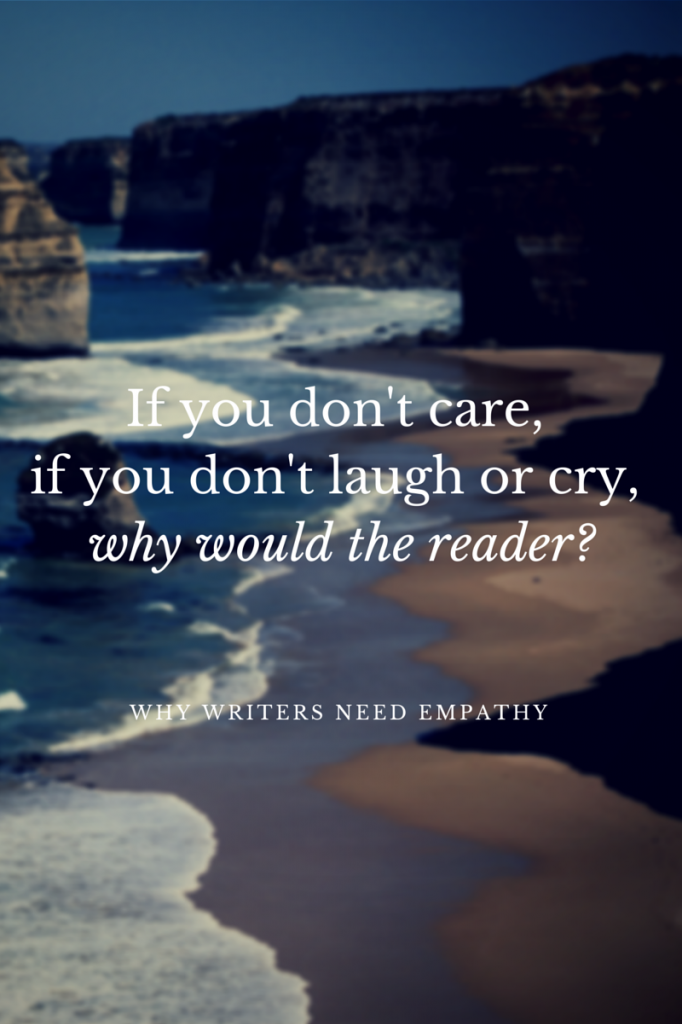Better the devil you know. . .
Author: vlaw759
“Beast and the Beauty” is in Clare Literary Magazine

There’s been a lot of great news lately. I’m delighted to share that my short story “Beast and the Beauty” is in the Spring 2015 issue (Volume 16) of Clare Literary Magazine, a publication of Cardinal Stritch University.
You can read “Beast and the Beauty” and the full issue for free by CLICKING HERE.
Thank you to the Editorial Team at Clare Literary Magazine.
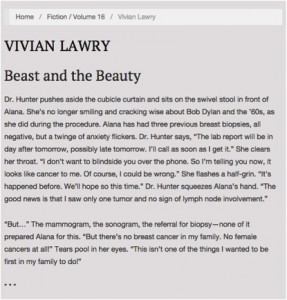
National Short Story Month

As National Short Story Month comes to a close, I’m reminded short stories come in many dimensions. “For Sale: baby shoes, never worn.” is at one extreme. This story is usually attributed to Ernest Hemingway, though that is unsubstantiated.
That flash fiction inspired Smith Magazine to put out a call to readers, which resulted in Not Quite What I was Planning: six-word memoirs by writers famous & obscure. Subsequently, Smith Magazine edited another volume, It All Changed In An Instant: more six-word memoirs by writers famous & obscure. Those six-word entries could inspire an incredible number of short stories for writers who go longer than flash-fiction. Or how about your own six-word nugget? You might become addicted to these mini-morsels. Mine is “Granny gave me a round tuit.”
VIRGINIA IS FOR MORE MYSTERIES
I have a story in the upcoming collection Virginia is for More Mysteries (Koehler Books, April 2016) titled “War and Murder at Nimrod Hall.” This is a sequel to “Death Comes to Hollywood Cemetery,” which appears in Virginia Is For Mysteries. It follows Clara as she escapes war-torn Richmond in 1862 only to encounter wounded soldiers and spies in Bath County.

You can find Virginia is for Mysteries on IndieBound, Amazon, Kobo, and Barnes and Noble.
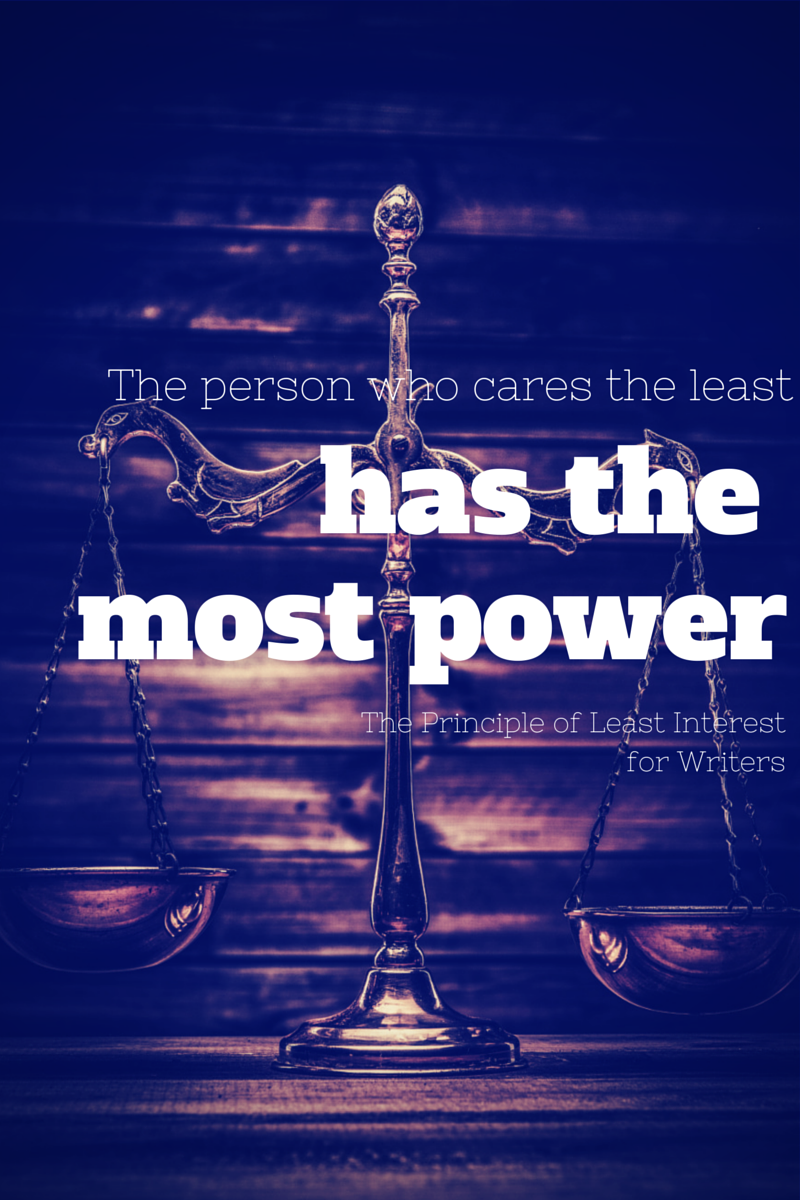
The Principle of Least Interest
The Principle of Least Interest is one of those areas in which science has confirmed what common sense has long maintained: the person who cares the least has the most power. This principle works everywhere from the housing market to the marriage market. If the buyer is more eager to buy than the seller is to sell, the seller will determine the selling price. If he loves her more than she loves him, he could end up the proverbial hen-pecked husband of so many comedies; vice versa and she is a candidate for the downtrodden foot-wipe—perhaps abused—wife of so many tragedies. This principle is so well understood that sometimes people try to disguise their true levels of caring/interest (talk of other great offers forthcoming, flirting with or dating a rival). Inherent in disguise is the understanding that what counts is often the perception of least interest.
The first take-away for writers:
For your characters, know who has the power and who is perceived to have it. And if your work has more than two characters, you need to understand the power relationships for each pair.
Unlike a credit score, people can’t go on-line and check out their power ratings.The primary reason that power relationships are often unclear is that the bases of power are virtually limitless: expertise, physical attractiveness, intelligence, wealth, athletic ability, knowledge of secrets, ability to make the other’s life miserable, being popular, great sense of humor—anything and everything that is important to that pair. Knowing the facts doesn’t tell you/the reader who has the power. If she married him for the money and he married her for the Green Card, who cares more? What if we add in that she is beautiful and he’s a great problem-solver; she’s moody and he’s uncommunicative; he’s a natural athlete and she manages their money; they’re both extremely intelligent and care mightily for their two children. As the author, you can determine who has the power by giving weight to these factors based on the characters’ perceptions of what is important.
The second take-away:
Power is seldom one-dimensional, and if you don’t recognize the complexity, your characters will be flat and unrealistic.
In many relationships—for example, boss/employee, parent/child, older sibling/younger sibling, teacher/student—the general expectation would be that the total power package would favor the former. But my guess is that most readers don’t read to confirm the norm; they like to be surprised.
The third take-away:
You should at least consider writing against common power expectations.
And just to end on a high-brow note: according to Lord Acton, “Power corrupts. And absolute power corrupts absolutely.” Consider how less-than-absolute power might corrupt your character(s).
Recap
- Know who has the power and who is perceived to have it
- Power is seldom one-dimensional, and if you don’t recognize the complexity, your characters will be flat and unrealistic
- You should at least consider writing against common power expectations
Learn more
“Who Has the Upper Hand? Power, Sex, and Seinfeld” by Dr. Benjamin Le
The Personal Use of Social Psychology by Michael J. Lovaglia (2007)
Social Psychology and Human Sexuality: Essential Readings by Roy F. Baumeister (2001)
Why Women Have Sex: Character Motivation Matters
I recently read an ad for a book titled WHY WOMEN HAVE SEX: Sexual Motivation From Adventure to Revenge—and Everything in Between, by Cindy Meston & David Buss, a clinical psychologist and an evolutionary psychologist, respectively. According to the ad, the authors used material from more than a thousand interviews with women plus research on physiological response and evolutionary emotions to explore sexual motivation. They mention sex as a defensive tactic against a mate’s infidelity (protection), as a ploy to boost self-confidence (status), as a barter for gifts or household chores (resource acquisition), or as a cure for a migraine headache (medication). No doubt any of us could come up with additional motives not mentioned in the ad!
Not having so much as seen the book, I can’t comment on it. But the ad alone is a titillating way to underline the following takeaway for writers (and readers):
- Behavior (in this example, sexual behavior) is what happens.
- Motivation is why it happens.
How readers feel about a behavior—and the character who did it—depends largely on what they think the why is. Think killing. Think stealing. Think paying a compliment. Think a million dollar gift to charity. There needs to be enough on the page to meet the writer’s goal of being clear or ambiguous about a character’s character! By and large, leaving motive wide open shouldn’t be a conscious choice for a writer. It leaves the reader with one that-was-out-of-left-field response after another. When ambiguity is the desired outcome, make the reader consider again and again the two or perhaps three motives that might cause the character to do A, B, C, D, etc. In general, this is a good way to reveal character—through behavior, not narrative. Much better to show Miriam going to bars, hitting on lonely or vulnerable men, and otherwise acting as a sexual predator than to simply announce that to the reader.
Read more on character motivation
“Rational and Irrational Behavior in Your Characters”
Story starter on motivation
Acceptable Reading Material

 A while back on Facebook, I mentioned that on the recommendation of my ten-year-old granddaughter, I was reading The Cabinet of Curiosities. I made a connection to Different Drummer stories, except for children. Then she read all three volumes of The Hunger Games—which, frankly, seem a bit horrific to me, not to mention advanced. Upon finishing, her comment was, “That was sad.” No nightmares or anxieties or other negative effects are apparent. Maybe her reaction is testimony to the fascination children have always had for (fictional) horror, as evidenced by the longevity of fairytales in their original (as opposed to Disney) versions.
A while back on Facebook, I mentioned that on the recommendation of my ten-year-old granddaughter, I was reading The Cabinet of Curiosities. I made a connection to Different Drummer stories, except for children. Then she read all three volumes of The Hunger Games—which, frankly, seem a bit horrific to me, not to mention advanced. Upon finishing, her comment was, “That was sad.” No nightmares or anxieties or other negative effects are apparent. Maybe her reaction is testimony to the fascination children have always had for (fictional) horror, as evidenced by the longevity of fairytales in their original (as opposed to Disney) versions.
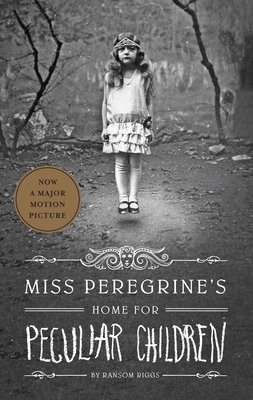 Now she is reading Miss Peregrine’s Home For Peculiar Children. Now, as general background, I would say that my granddaughter is very smart, and a very advanced reader, and her parents are both very intelligent and somewhat unconventional. But she’s ten-and-a-half. And I wonder how the world is changing. As I recall, at about that age, I was reading the Ruth Fielding adventure series. I find this book a real page-turner, but it includes sentences like, “‘Do I look like I blow truckers for food stamps?’ Ricky was a connoisseur of your-mom jokes, but this was apparently more than he could take.” And it includes issues of mental illness (paranoia, etc.)
Now she is reading Miss Peregrine’s Home For Peculiar Children. Now, as general background, I would say that my granddaughter is very smart, and a very advanced reader, and her parents are both very intelligent and somewhat unconventional. But she’s ten-and-a-half. And I wonder how the world is changing. As I recall, at about that age, I was reading the Ruth Fielding adventure series. I find this book a real page-turner, but it includes sentences like, “‘Do I look like I blow truckers for food stamps?’ Ricky was a connoisseur of your-mom jokes, but this was apparently more than he could take.” And it includes issues of mental illness (paranoia, etc.)
 My take-away is that children and families are different, and that what is acceptable reading material varies widely. And most importantly, adults with children or grandchildren who read need to dip into their reading worlds. And be prepared to set limits, encourage, and discuss as needed.
My take-away is that children and families are different, and that what is acceptable reading material varies widely. And most importantly, adults with children or grandchildren who read need to dip into their reading worlds. And be prepared to set limits, encourage, and discuss as needed.
What are your thoughts and experiences?
Writing Prompt: Unexpected Turn
Sometimes a story starts one way and then takes an unexpected turn–sort of like thinking it might be nice to visit Rhode Island and suddenly realizing you’re headed for the Bahamas. So today’s challenge, should you choose to accept it, is to revisit your story about hyperbaric therapy and turn it in a different direction. If it was successful, make it a disaster. Loaded with fear? Make it excitement. Or humor!
ALTERNATIVELY: write about hyperbaric therapy that goes terribly wrong. Of course it could be medical malfeasance or incompetence, but think more broadly: natural disaster, act of God, equipment failure. And what about suicide, assisted or otherwise? Or perhaps murder. Possibly some combination of the above?
To do either of these stories, you must get the details right. For example, a typical pressure is 2.0 pounds per square inch. That is equivalent to being 33 feet under the ocean’s surface. Details like that might mean something to deep-sea-diving readers. Know the benefits and risks of this treatment. Know what would be possible. And remember to bury your research by making it part of plot, dialogue, setting, and action.
And FYI, here’s a picture of a hyperbaric chamber after a treatment.
Writing Prompt: Hyperbaric Therapy
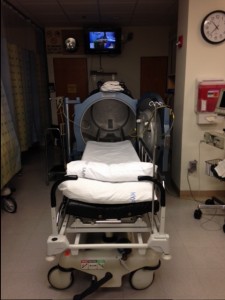
Research is central to writing. Getting the facts/background right is central to credibility. So here’s a research exercise for all you fans who are also writers. Pictured here is a chamber for the delivery of hyperbaric therapy. It comes equipped with a blood pressure cuff and an oxygen mask. The patient being treated wears four leads to monitor cardiac function. Find out as much as you can about the hyperbaric chamber, the therapy, and the conditions for which it is used. Write a story about someone receiving this therapy. And don’t let your research show!
Why Writers Need Empathy
The interview with Fiona Quinn started me thinking about the myriad ways that psychology and writing intersect. In particular, I’m now thinking about empathy—the feeling that you understand and share another’s experiences and emotions; the ability to share feelings. Psychology long assumed that empathy is a purely human emotion, though there are many who would disagree (witness observational studies of animals who form bonds of what appear to be friendship across species).
In any event, when a writer chooses a point of view character s/he is choosing the character with whom the reader is to identify. When done well, the reader sees the world through this POV character’s eyes and heart, understands the driving motives, and cheers for a positive outcome for that character. Perhaps empathy is a characteristic one either has or not. But (in my opinion) all good writers must have it. If you don’t care, if you don’t laugh or cry, why would the reader?
